They may have a lot of responsibility, or none at all.

What must a Texas property owner do to keep you safe? It depends. They may have a lot of responsibility, or none at all.
Despite how the media makes slip and fall cases sound, the law regarding them is actually quite reasonable. It’s not like you can go from store-to-store all day long, looking for a dangerous condition, slip, fall, and collect a big payday.
The media presents stories that way and leaves out important facts to get you angry so you watch their story (and so they can then charge higher prices to companies who want to advertise on their station).
Texas’ premises liability law says both you and the property owner have responsibilities. And an owner’s responsibility toward you depends on your status (licensee, invitee, trespasser) when you’re on their property.
Take a closer look at how this works practically:
“Invitee” is the most common status when injury cases arise. This means the property owner allows you to be on their property for business reasons. This includes a store’s customers – or even job applicants. Property owners have the highest degree of responsibility toward invitees.
The property owner must repair and correct known dangers. And they also must regularly inspect for, discover, and correct dangerous conditions. However, they only have a “reasonable” duty to do so and may not be liable in every case.
If they perform regular inspections and someone spills a drink all over their floor, they may not be liable for your injuries.
If you had awareness of the dangerous condition, if it was open and obvious, or if you misused the property of the owner, you may have no claim at all. Most injury claims involve licensees.
A “licensee” has special permission from a property owner for a specific purpose. For example, this could be a plumber called in to repair leaky pipes.
In this case, property owners only have to repair and correct known dangerous conditions for the licensee. They do not have to actively inspect for and discover unknown dangerous conditions.
Texas law covers “attractive nuisances.” This means something like a swimming pool or heavy machinery – something children would find interesting to play in, on, or around.
In this case, property owners have the responsibility to do everything they can to keep children away from the attractive nuisance. For a swimming pool, that may include a barrier. Although not necessarily a locked barrier.
If a property owner doesn’t take such measures, they then might be liable for any injuries suffered by a child.
Trespassers have practically no protection at all, and rightfully so. A property owner has no obligation to protect trespassers. And they may also not willfully injure trespassers.
For example, a farmer owns a field where local teens drive their cars, spin donuts, and ruin his property. That farmer cannot scatter nails about his property, hoping to poke holes in the tires of the teens’ cars.
Legally, a property owner cannot create a dangerous condition, fail to warn trespassers about it, knowing that it’s likely to cause harm to trespassers or their property.
That’s a quick guide to property owners’ responsibility towards you when you use their property. And if you find yourself injured, talk to a personal injury lawyer because they offer free consultations and can make sure you get fair compensation when appropriate.
Sometimes a property owner should have discovered a dangerous condition before someone was injured. If not compensation can likely be recovered. What does “constructive notice” mean?
You slip on a slick spot in a grocery store. You break your ankle. You have to miss a few weeks of work. Can you file a successful claim against the grocery store?
Notice we didn’t say the situation happened because of an employee who mopped a spot and forgot to put a sign or warning cone up.
Should the store owner have discovered the dangerous condition before your fall? Should they have warned you of the dangerous condition or eliminated same prior to your fall?
To win a claim or case like this, you will need to demonstrate the store knew about the dangerous condition (actual knowledge) or that they should have known about the dangerous condition (constructive knowledge).
Contrast these two examples: If the situation happened as described earlier – an employee mopped the floor and failed to put up a warning sign – the store “should have known” of the dangerous condition and is likely responsible for compensating you.
In fact, since a store employee created the dangerous condition actual knowledge of same will likely be presumed.
However, if another customer has a drink in the store, spills a little, leaves the scene and doesn’t bother to tell the store, and then you slip on it just a few minutes later, the store likely won’t be responsible.
The store will strongly argue they didn’t have a reasonable amount of time to learn of the spill and make the area safe.
On the other hand, they would likely be negligent if the spilled drink was on the ground for an hour as that would appear to be sufficient time for them to discover the dangerous condition.
What if an employee walked right by the spill 5 minutes before your fall? Arguably, the store might still be found to be negligent as store employees have an affirmative duty to scan the premises for dangerous conditions.
When you get down to it, most property owners do the right thing. They’re honest and don’t want anyone to get hurt. And they don’t want to risk a costly lawsuit either.
To meet the “should have known” test, a few standards are checked:
A premises liability case demands a detailed analysis based on the specific facts and circumstances of the loss. If you find yourself involved in one immediately contact a lawyer in Dallas for personal injury to discuss whether actual or constructive knowledge of a dangerous condition can be established.
In the last four years, our firm made Top Verdict’s “Top 50” Personal Injury Settlements in Texas list 44 times, and the “Top 100” list 70 times.
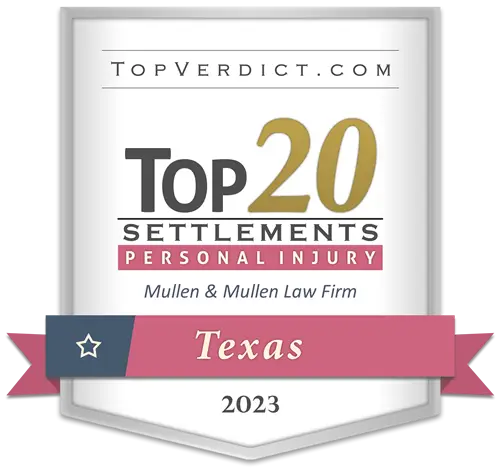
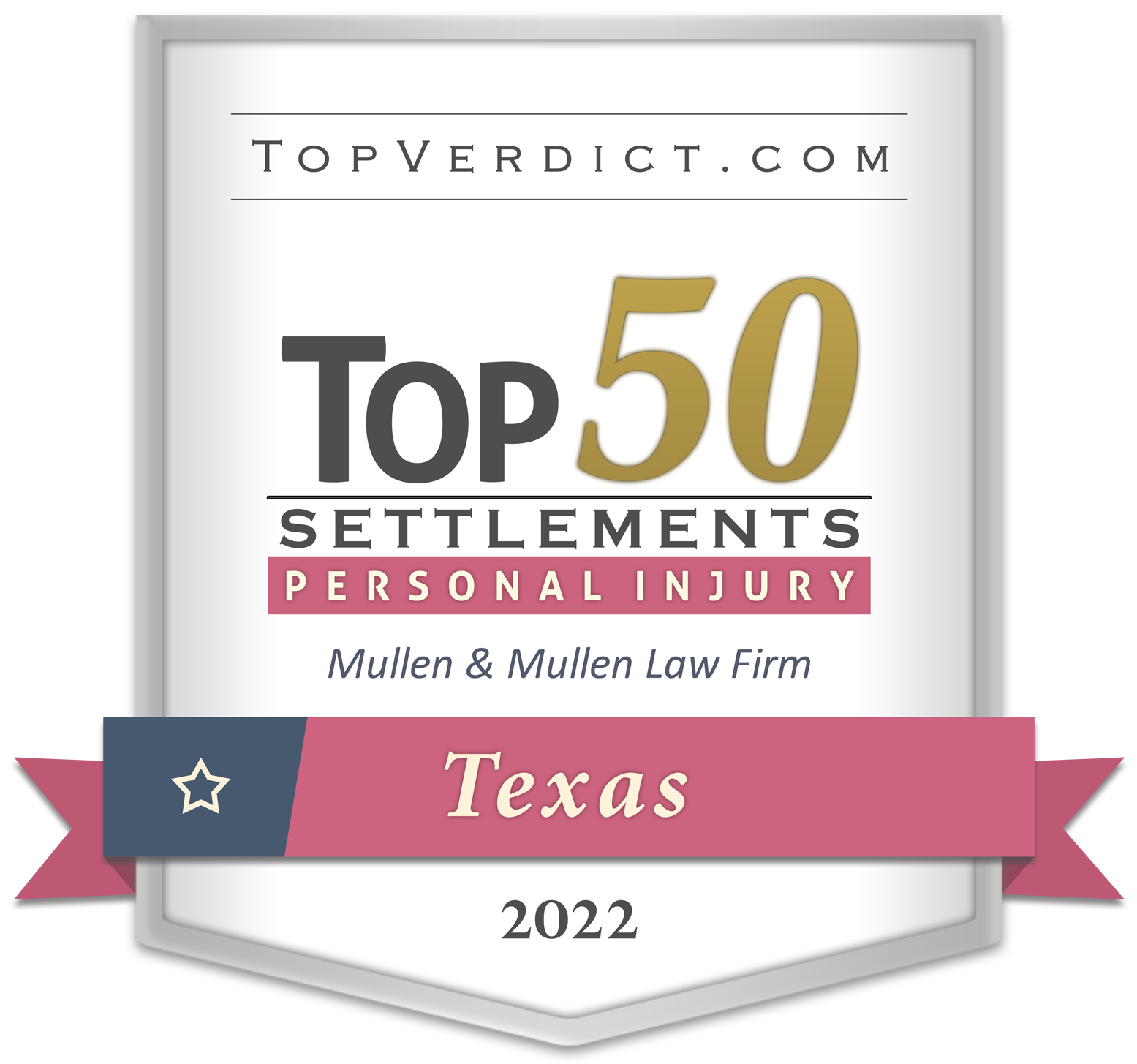
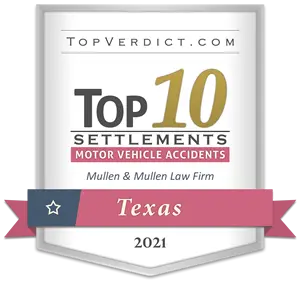
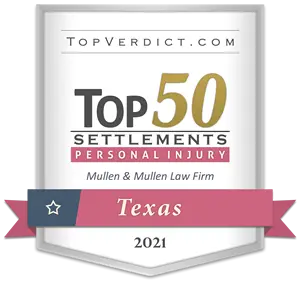
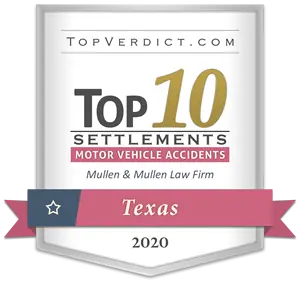
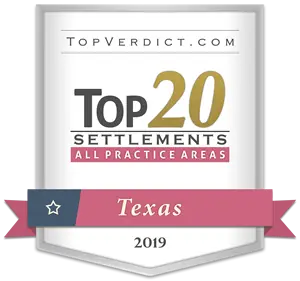
According to TopVerdict.com, our Dallas attorneys consistently achieve some of the highest recoveries in the state of Texas. As a matter of fact, in the last four years, we’ve made their Texas “Top 50” Personal Injury Settlements list 43 times, and their “Top 100” list 70 times. For example, in 2021 one of our claims made the Top 10 list, eight made the Top 11-20 list, and ten made the Top 21-50 list. When you factor in our reduced 29% contingency fee, we are confident we will help you recover more. At Mullen & Mullen, we pride ourselves on routinely recovering full policy limits for our clients without the necessity of costly and time-consuming litigation.
According to TopVerdict.com, our Dallas attorneys consistently achieve some of the highest recoveries in the state of Texas. As a matter of fact, in the last three years we’ve made their “Texas Top 50 Personal Injury Settlements” list 43 times. For example, in 2021 one of our claims made the Top 10 list, eight made the Top 11-20 list, and ten made the Top 21-50 list. When you factor in our reduced 29% contingency fee, we are confident we will help you recover more. At Mullen & Mullen, we pride ourselves on routinely recovering full policy limits for our clients without the necessity of costly and time-consuming litigation.
We have access to state-of-the-art diagnostic technology through well-established relationships with medical doctors, surgeons, physical therapists, chiropractors, neurologists, counselors, and other healthcare providers in the entire DFW Metroplex. You receive the quality medical attention you need from local providers near where you live or work. These providers specialize in treating people hurt in accidents of all kinds and they know how to properly document injuries to meet the legal burden of proof in your personal injury case. These providers are also willing to delay billing collections until after your case is resolved so you can focus on recovering without additional stress. Physicians that don’t routinely treat accident victims as part of their practice usually turn away patients over fear of being involved in the legal process or fear of health insurance companies refusing to pay accident-related healthcare bills. Please call us at 214-747-5240 for a free consultation and some advice.
Even if you don’t have health insurance or can’t afford your deductible, Mullen & Mullen will secure you the quality healthcare and state-of-the art diagnostics you deserve with no upfront out of pocket costs.
Shane, Joseph and Regis have almost 100 years of combined experience practicing personal injury law. That doesn’t even include the combined experience of the attorneys that serve as of-counsel to Mullen & Mullen at no additional cost to our clients. Our firm continues to evolve, but we never forget our Core Values. We do the right thing, handle cases the way we would want our own case handled, and we truly listen to clients. We have over 40 years of local knowledge, and that matters!
Some lawyers forget that they represent the client, but we never have. Our legal team will make YOU the priority. You are the boss, and we will respond quickly to your requests for case updates and assistance. We guarantee that when you need to speak to your counsel, you will speak directly to your counsel, not to a paralegal or secretary, because that’s the way it should be.
Most firms hire an investigator to help develop evidence on your case and charge you back for that service. Our firm, however, has 2 full-time accident investigators on staff and we offer their services to you for free. This is another way we will maximize your compensation.
They say a picture is worth a thousand words. Video footage is worth a lot more. Our in-house videographer allows us to capture the true impact the accident has on your life beyond mere words on a piece of paper.
When necessary, Mullen & Mullen Law Firm uses cutting edge technology like 3D imaging videos to fully demonstrate the extent of our clients’ injuries to the insurance companies. This also helps maximize the value of your claim.
Mullen & Mullen’s attorneys live and work right here in Dallas, and always have. We believe in paying our success forward by helping people in the North Texas community, and are dedicated to supporting these local charities.
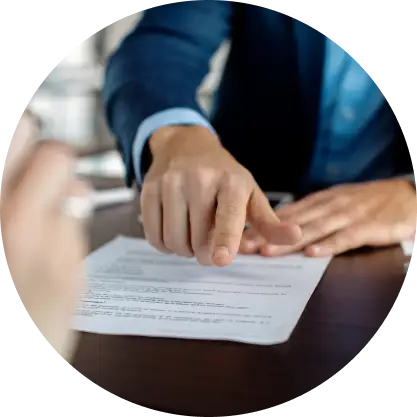

Our success rate speaks for itself. We consistently earn awards from TopVerdict.com for achieving the highest settlement amounts in Texas. In fact, no other law office made their 2021 Texas "Top 50" personal injury settlements list as many times as we did. We placed on it nineteen times in a single year.
You'll always be kept in the loop regarding the status of your case. Calls are answered promptly, and you can even text your dedicated legal team directly 24/7.
We'll make you feel like part of the family, not just another case. Our compassionate lawyers will take the time to listen to your story, comprehensively understand your unique circumstances, and we will tailor our legal strategies accordingly. Your best interests are at the forefront of everything we do.
Mullen & Mullen has been a mainstay in the North Texas community since 1983. Our attorneys are always willing to meet with injury victims face-to-face. You won’t be dealing with some call center hundreds of miles away or on the other side of the country (or world).
We won’t back down or be intimidated in any form or fashion. We will not allow insurance carriers to delay, deny, or minimize your claim. We never hesitate to recommend litigation if it is necessary to achieve a just outcome.
When you work with a big law firm, you'll most likely be assigned a case worker and may never even talk to your attorney. Our attorneys make themselves available and invest in your case personally.
Of course we only get paid when you do. And when we do, we discount our legal fees to 29% instead of the industry standard 33.3% for claims that settle without litigation.
It's not just the hundreds of 5-star reviews that we've earned, but the things that our clients say. Read our reviews and you'll quickly see that we put passion into our work.





The Mullen & Mullen family is here to address your concerns and make the path to recovery smooth. There are no fees to get started and you pay $0 if we don’t settle your case.
Copyright © 2024 Mullen & Mullen Law Firm. All Rights Reserved.
LICENSED BY THE STATES OF TEXAS & MISSOURI FOR THE GENERAL PRACTICE OF LAW. The information on this website is not intended to be legal advice. That can only come from a qualified personal injury lawyer who is familiar with all the circumstances and facts of your specific case and the law relevant to it.